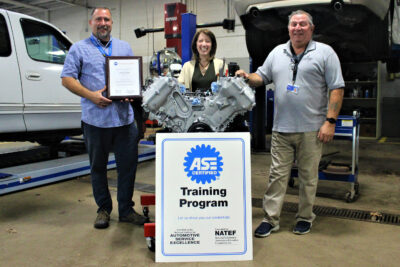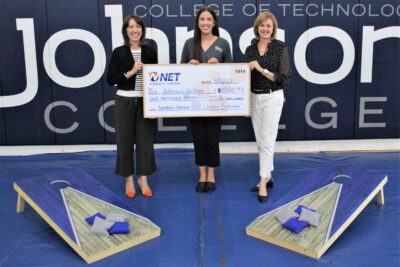The Automotive Technology program at Johnson College received reaccreditation by the ASE Education Foundation, formerly known as NATEF, and the National Institute for Automotive Service Excellence (ASE). The program has been reaccredited in the following areas: Engine Repair; Automatic Transmission/Transaxle; Manual Transmission and Drive Axles; Suspension and Steering; Brakes; Electrical/Electronic Systems; Heating and Air Conditioning; Engine Performance.
In order to achieve this renewed recognition, the College’s Automotive Technology program underwent rigorous evaluation by the ASE Education Foundation using nationally accepted standards of excellence in areas such as instruction, facilities, and equipment. Through the endeavors of both our program instructors and the ASE Education Foundation, Johnson College can more successfully bridge the gap between the needs of industry and classroom training to assure that students enter the workforce as well-prepared technicians.
Johnson College’s Automotive Technology program is an Associate of Applied Science degree program that prepares students as entry-level technicians in the automobile and diesel industries. Upon completion, graduates can expect to work for employers in career fields such as automotive, truck, farm and earthmoving equipment dealerships; truck, power generation and construction companies; automotive service centers; engine repair/machine shops; automotive equipment distributors; independent service garages; automotive parts manufacturers; sales representation; as well as auto insurance companies. They may also work with brake systems, transmissions, alignments and repairs; be representatives in claims, sales, and service; or become truck/fleet maintenance technicians.
To learn more about this program, visit: johnson.edu/divisions-of-study/transportation/automotive-technology.
Pictured left to right: Jim Williams ’00, Automotive Technology Instructor; Dr. Katie Pittelli, President & CEO; Mark Kozemko ’79, Automotive Technology Program Director.









